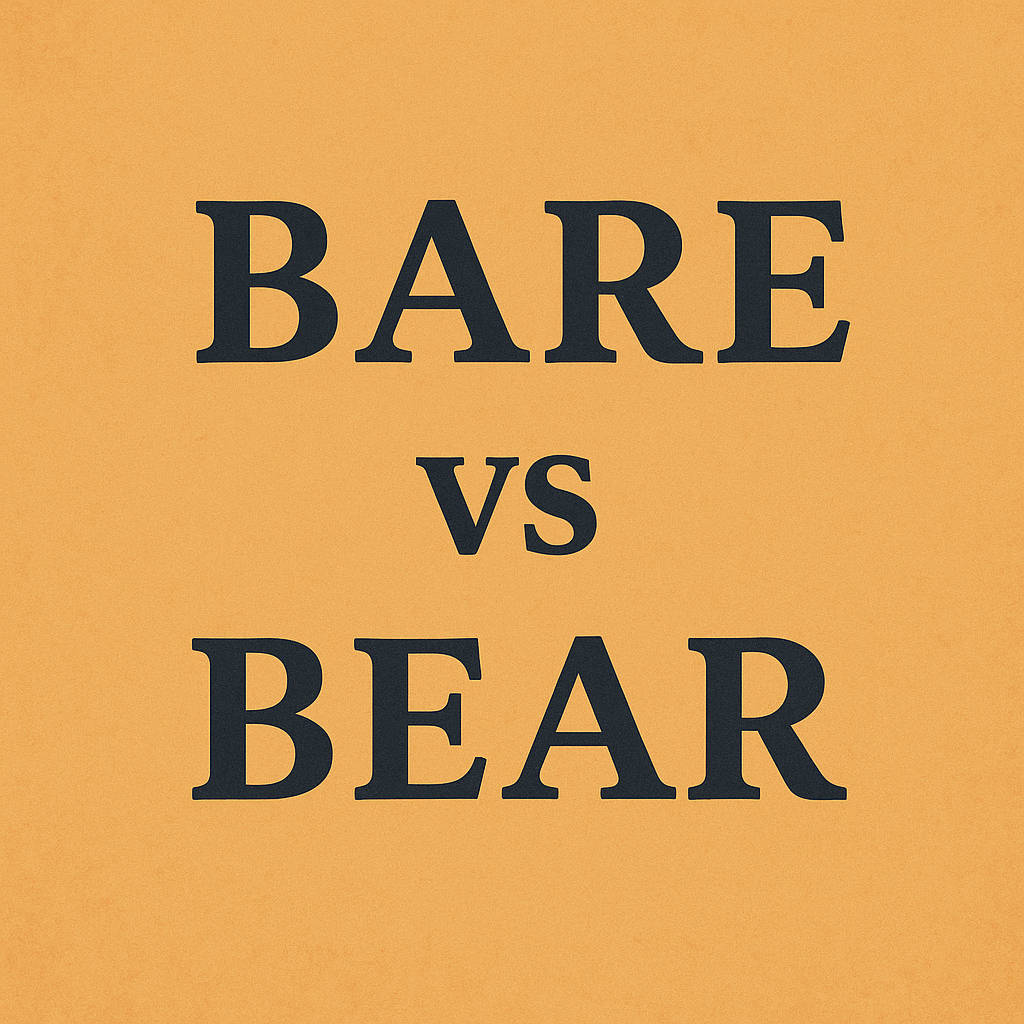Bare vs Bear

“Bare” vs “bear” are homophones, they sound alike but have entirely different meanings and uses. If you’ve ever been unsure about whether to say “bare with me” or “bear with me,” you’re not alone. Many people misuse these two words, leading to humorous or confusing errors in writing and conversation.
In this article, we’ll break down the grammatical differences between “bare” and “bear,” provide real-life examples, and give you memory tricks to ensure you always choose the correct word.
Grammatical Explanation
Bare (adjective/verb)
- Definition: Without covering or clothing; basic or minimal.
- Part of Speech: Can be used as an adjective or a verb.
- Examples:
- Adjective: “He walked barefoot on the bare floor.”
- Verb: “She couldn’t bare the pain any longer.” (Note: In modern usage, this is now often replaced with “bear.”)
Bear (noun/verb)
- Definition (noun): A large mammal.
- Definition (verb): To carry, support, endure, or give birth to.
- Part of Speech: Noun and verb.
- Examples:
- Noun: “We saw a grizzly bear at the zoo.”
- Verb: “Please bear with me while I explain.”
Real-Life Examples of Bare vs Bear
- Incorrect: Please bare with me while I get the documents.
Correct: Please bear with me while I get the documents. - Incorrect: The tree was stripped bear of its leaves.
Correct: The tree was stripped bare of its leaves. - Correct (Noun): A bear wandered into the campsite.
- Correct (Verb): She had to bear the weight of responsibility alone.
Common Mistakes in Bare vs Bear
| Incorrect Usage | Correction | Explanation |
|---|---|---|
| Bare with me a moment. | Bear with me a moment. | “Bear with me” means to be patient — a job for the verb “bear”. |
| He could not bare the news. | He could not bear the news. | The correct verb for enduring something is “bear.” |
| The wall was bear. | The wall was bare. | “Bare” means uncovered or empty. |
Memory Tips
- “Bare” = Barren → Think of an empty, uncovered space.
- “Bear” = Animal OR Endure → Imagine carrying a heavy load or seeing a real bear.
Trick: If you’re talking about clothing, exposure, or minimalism , use “bare.”
If it’s about animals or enduring something, go with “bear.”
You may also like: Effected vs Affected: When and How to Use Each
For a more detailed linguistic breakdown, check out Merriam-Webster’s entry on Bear vs Bare.
Conclusion
“Bare” and “bear” may sound the same, but their meanings couldn’t be more different. Use “bare” when referring to something uncovered or minimal. Use “bear” when talking about enduring, carrying, or the animal.
Now that you’ve mastered the difference, you won’t be caught bare when asked to bear with someone in conversation!